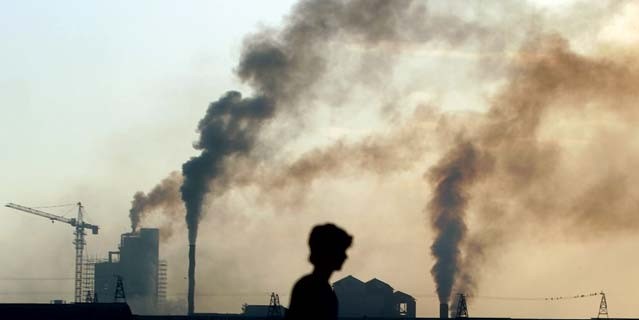Bhubaneswar: In another step towards improving environmental condition and reducing health hazards, the state government has decided to strengthen enforcement activities to minimise air pollution in some polluted towns.
A high-level exercise to this effect was held under the chairmanship of Chief Secretary Aditya Prasad Padhi here at Secretariat.
Considering the suggestions, Padhi directed collectors to intensify the enforcement activities for curtailing the pollution generated by the major polluters.
At the behest of the National Green Tribunal (NGT), the state government has prepared an action plan to improve the air quality in six towns of Odisha. The towns are – Bhubaneswar, Cuttack, Rourkela, Angul, Balasore and Talcher.
According to reports, the main sources of polluting matters like PM10 and PM 2.5 are mainly come from dust, transport emission, burning of waste material in residential areas, construction and demolition materials, DG sets, brick kilns, industries and different types of waste. Enforcement activities will be strengthened in the state, especially in the six towns, to minimise the pollution level.
It was decided in the meeting that Forest & Environment departments would work as nodal department for implementation of the State Clean Air Action Plan while IIT-Bhubaneswar would be taken as technological partner in implementation of the action plan.
Development Commissioner Asit Tripathy directed the concerned departments to segregate the suggestions into short-term, medium-term and long-term action agenda and prepare specific strategies for achieving national standards of air quality particularly in the identified six cities.
State Pollution Control Board (SPCB) Member Debidatta Biswal said that action plan has been prepared under the joint efforts of New Delhi-based Centre for Science and Environment (CSE), Forest and Environment Department and State Pollution Control Board.
The suggestive findings were shared with respective departments and agencies today in the meeting. Since the air pollution level is on the rise in some pockets of the state, it needs cogent and coherent effort by different stake holders, he said.
Hearing a petition, the NGT October 8, 2018 had asked 23 states and Union Territories to prepare action plans to curb air pollution in 102 cities, of which six are in Odisha. The air quality in these cities is not compliant with the National Ambient Air Quality Standard (NAAQS).
The permissible limit of annual average level of PM10 is 60 microgram per cubic meter and PM 2.5 level is 40 microgram per cubic meter. As per this matrix, six towns of Odisha have been regarded as non-attainment cities.






































